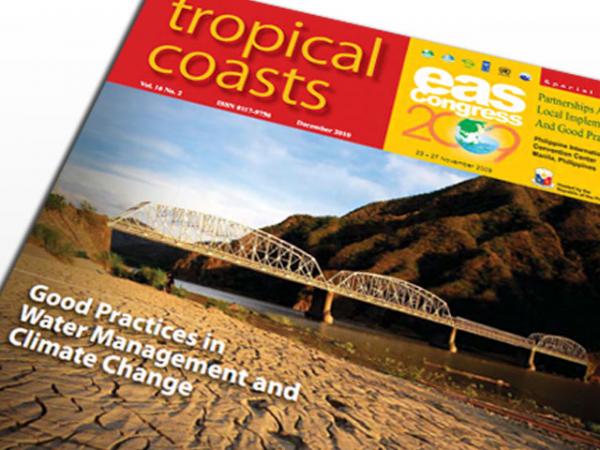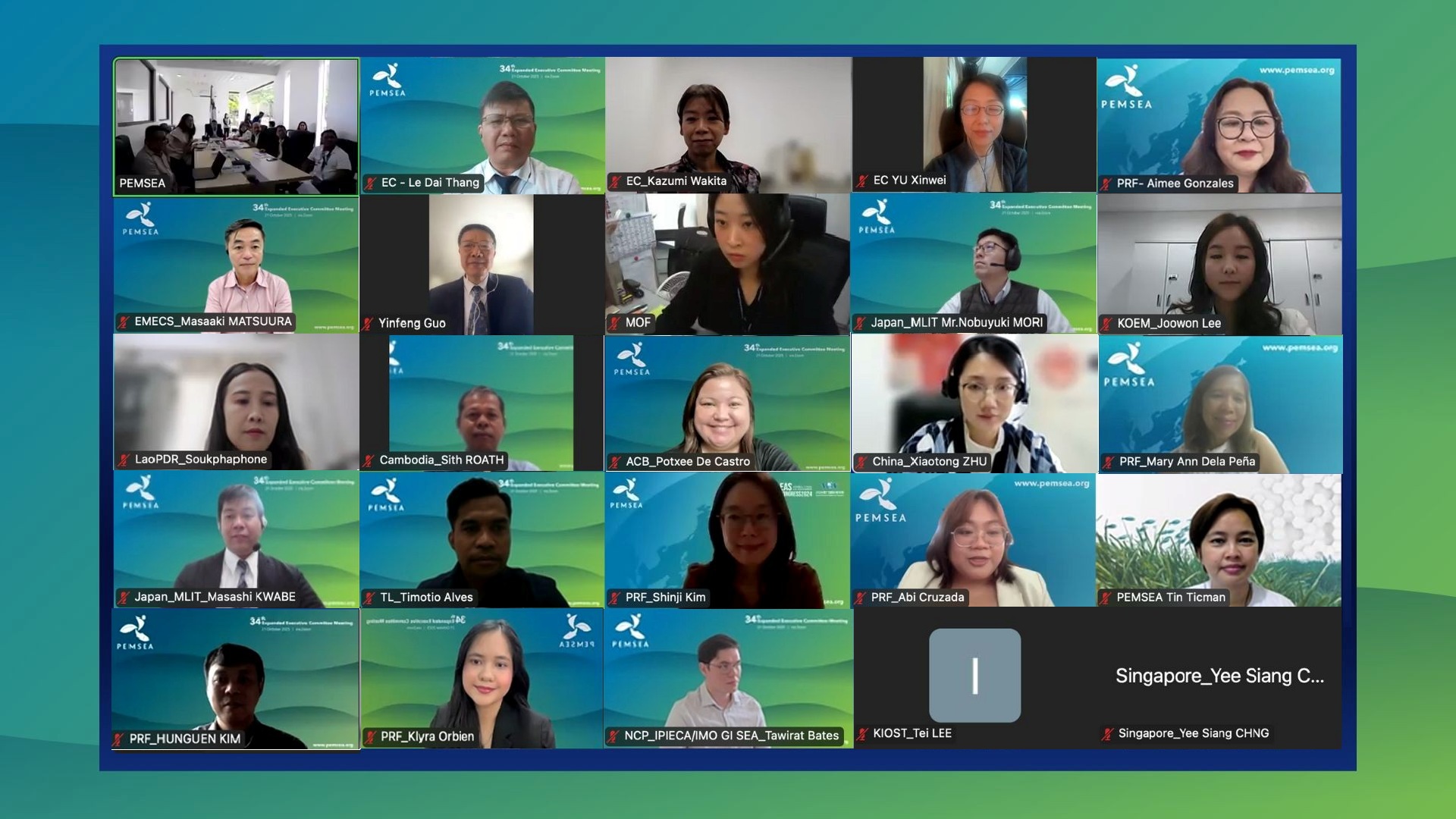Good Practices in Water Management Highlighted in Tropical Coasts Issue
Saturday, 19 March 2011

Quezon City, Philippines — PEMSEA released a new issue of Tropical Coasts that expounds on the challenges and good practices in water supply and management. The new issue features the discussions held during the International Conference on Sustainable Coastal and Ocean Development during the East Asian Seas Congress in Manila, Philippines, on 23-27 November 2009.
Good practices covering three water-related issues were explored during the course of the International Conference, namely: (a) prevention of marine pollution from sea-based activities; (b) water use and management for food supply, energy production and ecosystem services; and (c) innovative approaches and practices in freshwater/marine water management, including pollution reduction.
Steering the Course towards Safer Shipping and Cleaner Seas highlights international efforts in oil spill preparedness and response, marine biosafety and environment-friendly port development and management. Sources and causes of hazards associated with maritime activities, as well as case studies and best practices that can be replicated and scaled up, are detailed. NOWPAP and PEMSEA are identified as working examples of regional mechanisms that can be replicated in other regions where advocacy, technical cooperation and promotion of regional oil spill preparedness, response and cooperation need to be enhanced.
Insights into climate change impacts and responses, as well as disaster management systems at the international, national and local levels, are featured in Saving the Global Commons, Charting Our Future. The effects of climate change are discussed as they relate to sustainable development in Monsoon Asia, fisheries production, and shipping. The article examines available options to address climate change in the East Asian context, through: mitigation measures to further reduce emissions and rehabilitate ecosystems; adaptation measures, including scaling up the application of integrated coastal management (ICM) as a process for systematically reducing risk and increasing resiliency in the face of related hazardous events; and geoengineering or climate engineering measures aimed at reversing negative environmental trends associated with global warming.
The Nexus of Water, Energy, Food and Environment: Creating a Ripple Effect delves into the issue of improvements in water resource management, and emphasizes the point that current management practices tend to be fragmented, compartmentalizing each activity and water use. Water for drinking, irrigation, energy, industrial use, sanitation, waste management, navigation, and protecting ecosystems have been treated separately, with distinct management, political and economic structures. Case studies on integrated coastal and river basin management (ICARM) are presented to highlight experiences and good practices in different regions of the world. The article also describes the state of innovative strategies and technologies that are being demonstrated to harness the ocean energy and alternative water-based energy systems for small-scale applications, as part of sustainable development policies and programs in various countries.
Weaving through the Pollution Conundrum: Getting it Right focuses on best practices from the Northwest Pacific, East Asia, Europe and North America. Lessons learned in the Danube River, Amur and Tumen Rivers, Selangor and Klang River systems, Chesapeake Bay, Singapore River and Pasig River provide invaluable case studies of pollution management through strategic partnerships. In addition, the importance of public-private partnerships in addressing pollution and other issues is emphasized. The situation of Manila Bay is presented, where the business sector has confirmed its commitments, set specific targets, and taken an active role in initiating programs to support the rehabilitation of the Bay and surrounding watershed areas.
Tropical Coasts is a bi-annual publication of PEMSEA, the Global Environment Facility (GEF), United Nations Development Programme (UNDP), United Nations Office for Project Services (UNOPS). This issue was supported by the United Nations Environment Programme - Global Programme of Action for the Protection of the Marine Environment from Land-based Activities (UNEP-GPA) and the Swedish International Environmental Secretariat for Asia (SENSA). It is geared towards stimulating an exchange of information and sharing of experiences and ideas with respect to environmental protection and the management of coastal and marine areas. Past issues can be downloaded at http://localhost/dr_pemsea_prod.
The third triennial EAS Congress, hosted by the Government of the Philippines and co-organized by the Philippines Department of Environment and Natural Resources, attracted 1,480 participants, 100 exhibitors, 51 co-conveners and supporting organizations, and 12 sponsors.
To learn more about these topics, download the latest issue of Tropical Coasts magazine.




